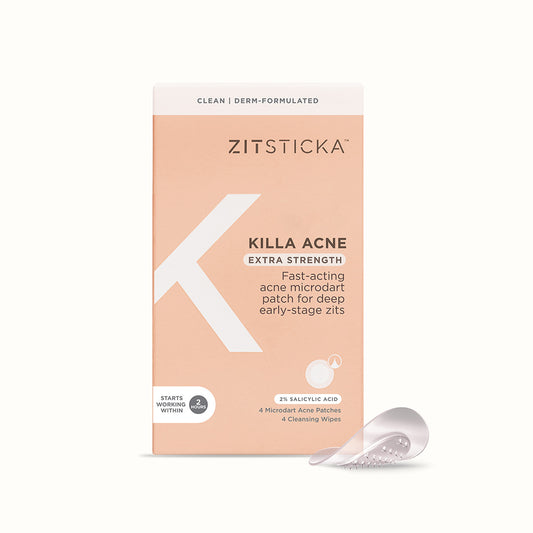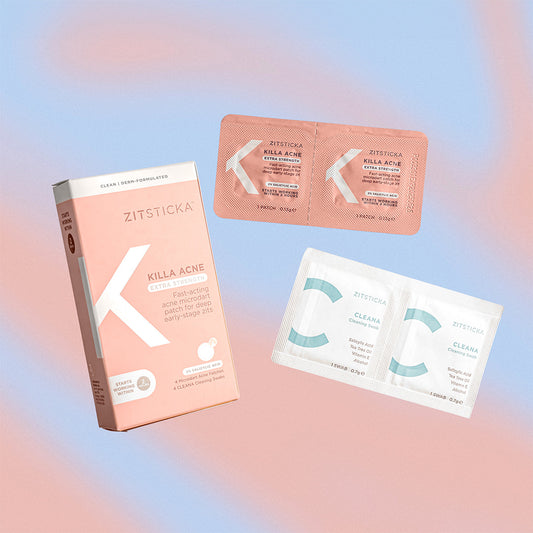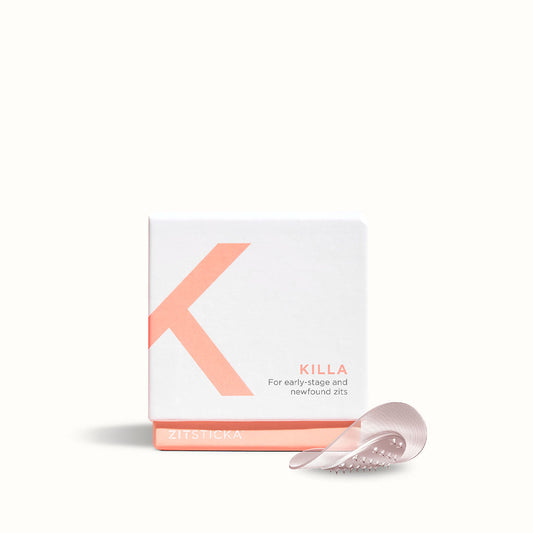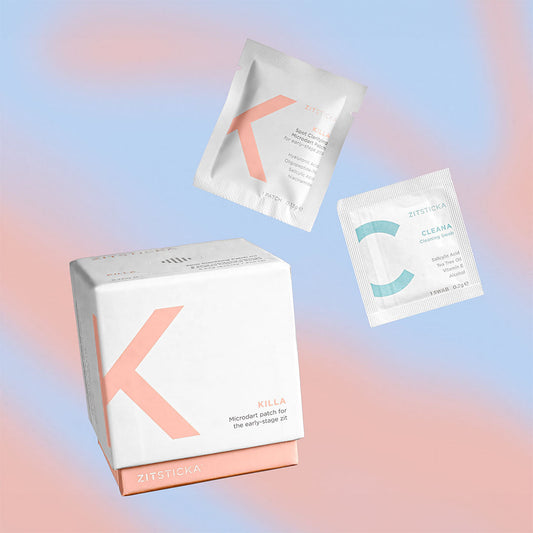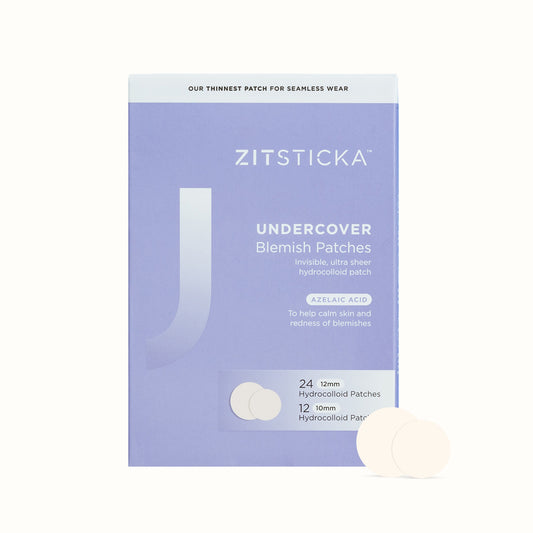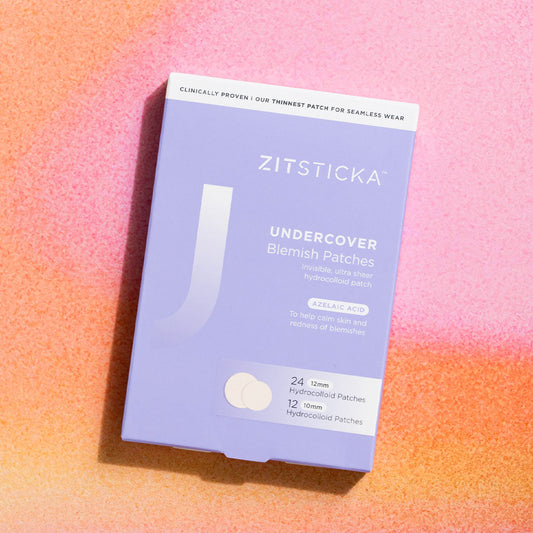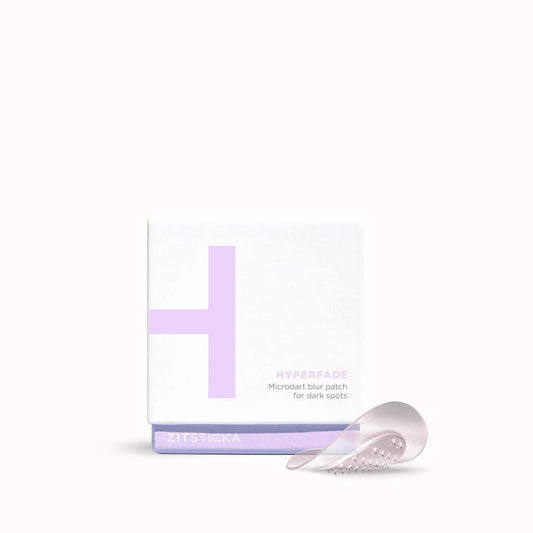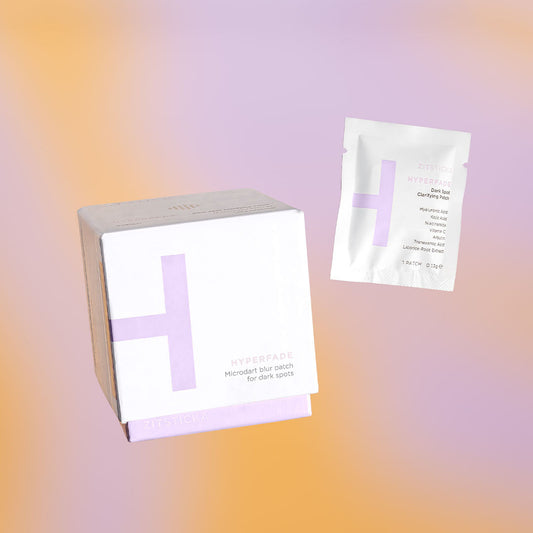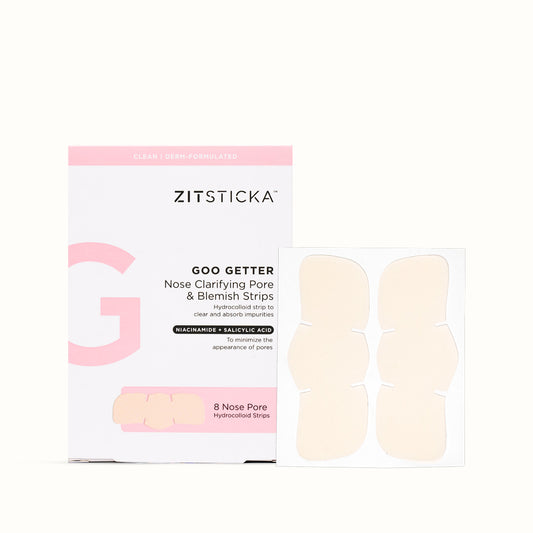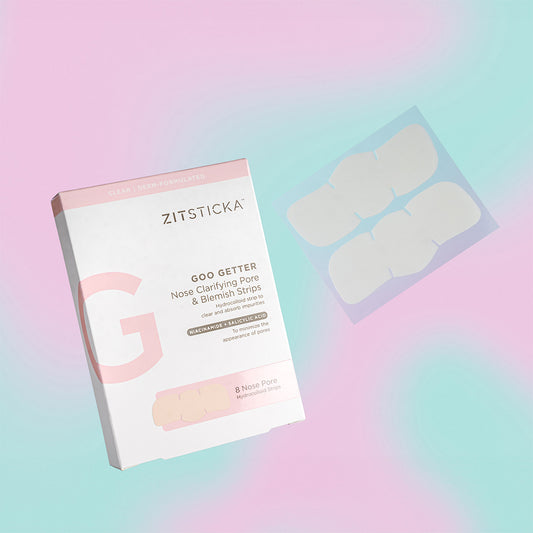By Lee Phillips
When our skin is damaged, the cells that produce pigment—melanocytes—are kicked into hyper-drive as part of the immune response. Et voila! Hyperpigmentation. Whether it’s a large brown patch from sun damage, or small dark spots left over from pimples past, hyperpigmentation affects a lot of us. Like any skin care phenomenon, hyperpigmentation and all it entails comes with some common misconceptions. Below, we break down five of them.

Myth 1: Hyperpigmentation is caused by sun damage or aging
If you’re a 20-something who wears sunscreen, you might think you’re free from hyperpigmentation. Think again! While sun damage (sun spots) and age spots (liver spots) are some of the most commonly known causes of hyperpigmentation, they aren’t the only ones!
Two of the lesser known causes are hormones and acne. The hormone-related variety is known as melasma, and typically occurs during pregnancy, because of birth control, or during other natural hormone changes. (Have you met our supplement, BLUR POTION? She tends to kick melasma’s a$$.)
The second, caused by acne, is called post-inflammatory hyperpigmentation and is your skin's reaction to inflammation. Inflammation can be caused by rashes or cuts, but this form of hyperpigmentation most famously appears post-pimple break out. You know when you think your pimple is gone, but it leaves behind a dark mark? That's what we’re talking about. They can take weeks, or even months to fade—as if the pimple itself wasn’t infuriating and annoying and ugh enough! To combat this kind of hyperpigmentation, apply a HYPERFADE patch. These cuties use micro dart technology to zap your dark spot with fading ingredients like kojic acid, and vitamin C, as well as ingredients that inhibit the further production of melanin like arbutin and licorice root.
Myth 2: Exfoliation can get rid of it
Hyperpigmentation is triggered by skin cells—those melanocytes we mentioned up top—far below the epidermis. Because of this, exfoliation may appear to lighten pigmentation temporarily but won’t actually substantially fade it, let alone remove it entirely. Exfoliation is great for removing dead skin cells and improving cell turnover, which can aid in your body's fading of hyperpigmentation. But watch out—the process can actually be contributing to it, if you’re not being mindful. Because exfoliating strips off the top layer of skin, our skin becomes more exposed to sun damage that causes hyperpigmentation. Having raw exposed skin is never a good idea for UV damage, but if you’re battling hyperpigmentation, it’s all the more important to protect your skin’s barrier from the sun by using a broad spectrum SPF.
Myth 3: Lasers and crazy chemical peels are your only options
It’s true that hyperpigmentation fades away on its own, but it could take months or in some cases, years! That’s no fun. But if exfoliation doesn’t work because hyperpigmentation happens below the skin’s surface, does that mean that the only other option is a 400 dollar facial at a medspa? Absolutely not! For those really long-standing, stubborn cases, usher in the supp we mentioned earlier, BLUR POTION. She’s a dermatologist-formulated blend of antioxidants proven to fade hyperpigmentation from the inside, out. Want proof? You’re smart to want proof!! See some before-and-afters here.
Want to keep trying the topical route? We respect that. AHA/BHA exfoliants increase cell turnover, so that extra pigmentation can be phased out faster. If you're going down this road, sensitive skin should opt for products with lactic, mandelic acid or kojic acid (Hello HYPERFADE). Glycolic and salicylic acids are medium sensitive, and work for most skin. Vitamin A derivatives like retinoids are certified professionals at renewing skin and fading hyperpigmentation but because of it’s strength and drying properties, should be introduced slowly and in low percentages. No matter what your skin type is, Vitamin C is a powerful antioxidant that brightens skin and it’s one of the most universally praised ingredients to fade hyperpigmentation. FWIW, as a regular non-dermatologist human, I 10 out of 10 would recommend!
Myth 4: Darker skin tones don’t need to worry
This misconception is most likely tied to the fact that the poster child for hyperpigmentation has traditionally been an older white woman with sun spots. The reality is that darker skin tones actually experience hyperpigmentation more frequently because of the increased amount of pigment already in the skin. This is also connected to another myth about darker skin tones: that you don’t need SPF. While melanin in darker skin tones does protect from sun damage, it’s only at an SPF of about four. Again for the ppl in the back: Don’t forget that sunscreen!
Another thing to consider when talking about darker skin tones and hyperpigmentation is that many chemical peels and laser facials that treat hyperpigmentation were not created with melanated skin types in mind. When exploring these kinds of treatments for hyperpigmentation, it’s important to seek out facialists with experience in all skin tones. If you don't want to worry about all of that, HYPERFADE patches are a great option for spot treating post zit damage, using gentle but effective ingredients, making them simply perf for all skin types.
Myth 5: Hyperpigmentation is a one time offender
If hyperpigmentation is caused by trauma to the cells, it seems like once your skin heals and the pigment fades, it won’t return, right? That's wrong for the same reason acne is not a one time offender. While an individual pimple may resolve, the underlying conditions that caused it will make you break out again.
Hyperpigmentation can be caused by a number of different factors that we’ve mentioned: Hormones, scaring, inflammation, sun damage, and the beautiful and natural process that is ageing. For people with persistent hyperpigmentation, tackling one cause may not mean fully eradicating the symptom. This emphasizes the importance of keeping up with your BHA/AHA, retinoids or vitamin C and always wearing sunscreen. While that may work for a number of years, hormone changes like birth control change, or pregnancy may bring hyperpigmentation back. As you get older, you might find that your hyperpigmentation fighting products are no longer working like they used to. Like so many other skin care and beauty practices, hyperpigmentation is a dynamic phenomenon that requires ongoing protective measures to keep at bay. As with everything else, your best weapon is your knowledge. And BLUR POTION! We hope this helped!
Posing another important question: Is a dark spot the same as a scar? Tap that trackpad here to read more.

